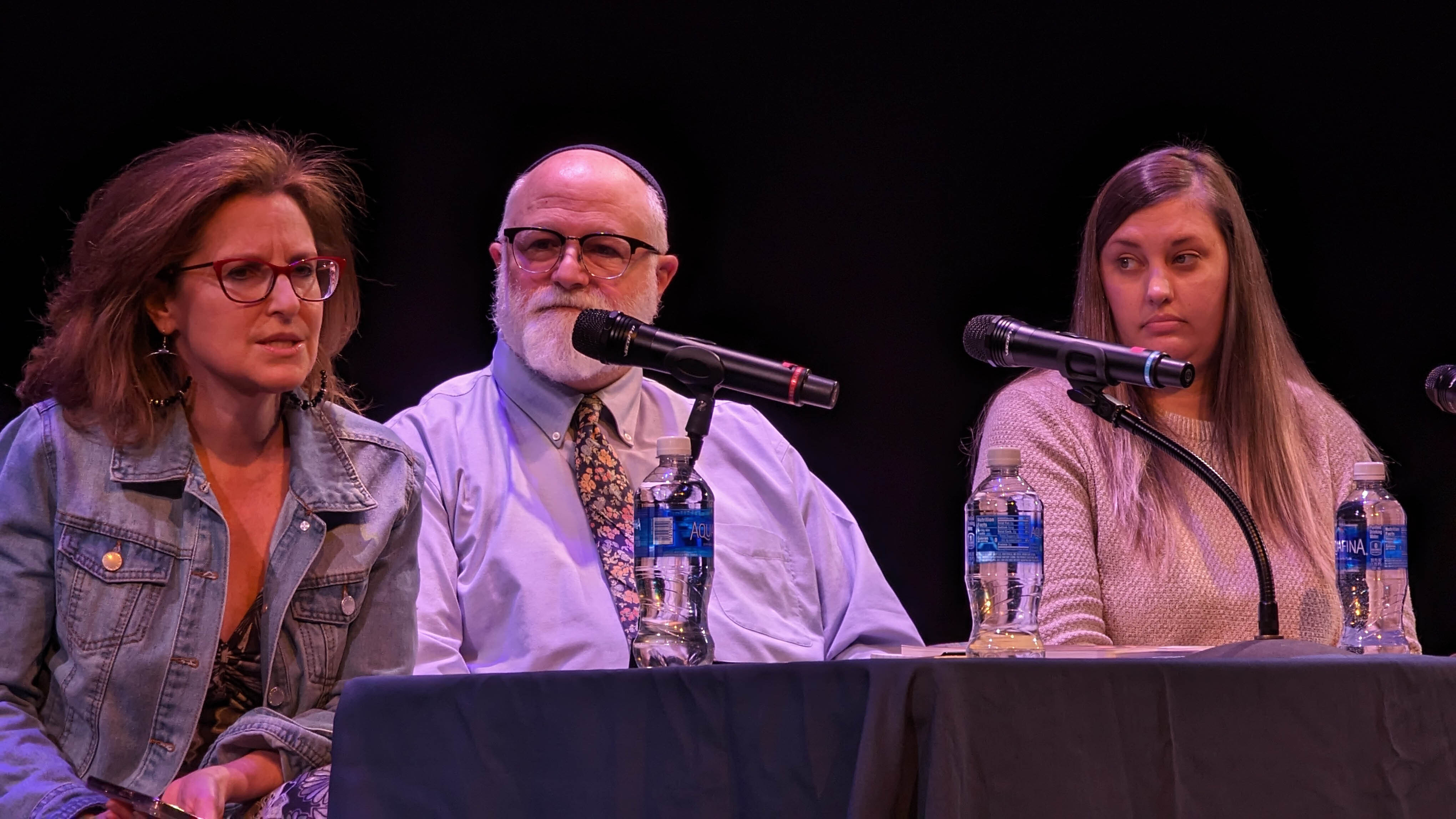A documentary screened at Old Dominion University highlights the story of a ship carrying Jewish refugees to North America in 1940 and how, facing a possible return to Europe, Hampton Roads locals came to their aid.
The 2020 Emmy-nominated film “Nobody Wants Us” was presented Feb.15 at the ODU University Theatre in recognition of International Holocaust Remembrance Day.
It follows the journey of the S.S. Quanza and its 317 passengers as they set out Aug. 9, 1940 from Lisbon, Portugal to the U.S. and Mexico to escape Nazi oppression.
Told predominantly through interviews with surviving refugees and journal entries of youths who made the trip, screening organizer and ODU historian Annette Finley-Croswhite believes the story is an opportunity for the community to reflect on the present by learning about past efforts by locals to help refugees in need.
“From a human perspective, this story radiates such good will,” she said. “Such understanding of the connections that we should have to other people and, at this particular moment in time, it seems like we seem to as a nation be forgetting those things.”
Many of the refugees aboard the Quanza fled from Belgium and France after the German invasion in May put them at risk of internment and death under antisemitic Nazi rule. For over 80 passengers, the journey became more desperate as they were denied entry during stops in New York and Veracruz, Mexico due to visa issues and strict immigration policy.
With few options, the refugees were brought to Norfolk as the Quanza refueled in preparation to return to Europe. Arriving on Sept. 11, 1940, the passengers feverishly sent telegrams for assistance.
“The Jewish community here came together and embraced the refugees,” said Finley-Croswhite, noting that members of Norfolk’s Ohef Sholom Temple brought food to passengers barred from disembarking by armed guards.

The S.S. Quanza arrived in Hampton Roads in September 1940 full of Jewish refugees escaping Nazi persecution and violence. The ship was scheduled to refuel and head back to Europe with the passengers until locals stepped in to help.
As members of the National Council of Jewish Women and even Eleanor Roosevelt advocated to the State Department and president to grant the refugees asylum, Jacob and Sallie Morewitz of Newport News played a key role in buying them time.
While Jacob Morewitz handled the courtroom, Sallie Morewitz worked in the family law firm’s office to prepare documents and paperwork as the two worked to keep the Quanza moored in Norfolk.
“She really was his partner in life,” said filmmaker Laura Seltzer-Duny. “Often women don’t get the credit, but I just love the fact that she was this silent hero.”
A maritime lawyer, Jacob Morewitz took a different approach than other lawyers trying to halt the Quanza’s departure. He sued the owning company for libel, claiming it knew the refugees would be unable to disembark and sold them tickets regardless.
“It took a long time to get the notice to the company in Portugal and for them to post the bond,” said Virginia Wesleyan University professor and Quanza scholar Eric Mazur. “By the time they posted the bond, everybody was off the ship.”
Though the lawsuit would be thrown out of court, the ship was impounded long enough for the refugees to be granted entry on Sept. 14 thanks to the Morewitzes’ stalling tactic. Once on land, members of Ohef Sholom and the NCJW brought the refugees to the Fairfax Hotel or their own homes while they made arrangements to other destinations.
The film’s release came amid growth in refugee crises and antisemitic sentiment around the world. The United Nations Refugee Agency reports over 108 million people have been displaced as of the end of 2022.
The Anti-Defamation League reported the U.S. in 2022 saw its highest year on record of antisemitic incidents since it began tracking them in 1979, up 36% from 2021. Virginia in 2022 saw a 50% increase in antisemitic incidents over 2021, rising from 46 to 69.




